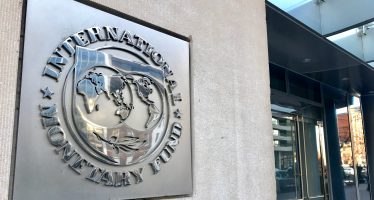Business in Times of Corona: Avoid the Herd and Hold the Line
 In times of crisis, when circumstance conspires against clarity and doom inspires basic instinct, philosophy becomes a beacon of reason. “Everyone has a plan until they get punched in the mouth.” Mike Tyson was the source of that insightful yet somewhat misleading truism. Experience teaches that contingency plans and protocols conceived in peacetime usually prove woefully inadequate when the proverbial substance has hit the fan. They offer a rough guideline at best and often need daily tinkering to adapt to the disconcerting dynamics developing ‘on the ground’.
In times of crisis, when circumstance conspires against clarity and doom inspires basic instinct, philosophy becomes a beacon of reason. “Everyone has a plan until they get punched in the mouth.” Mike Tyson was the source of that insightful yet somewhat misleading truism. Experience teaches that contingency plans and protocols conceived in peacetime usually prove woefully inadequate when the proverbial substance has hit the fan. They offer a rough guideline at best and often need daily tinkering to adapt to the disconcerting dynamics developing ‘on the ground’.
Corporations are, essentially, no different from individuals and react instinctively as they move from business-as-usual to survival mode: in order to preserve the core, outer rings are shed, and fat is trimmed as lockdown procedures take effect. The herd, panic-stricken, readies for a stampede to higher and safer ground only to find that no such place exists.
Perhaps CNBC and CNN should come with a mandatory warning: Watching may seriously affect your financial health. Brian Peston, The Money Guy of the eponymous YouTube channel, offers sensible advice: Fight all your human instincts and build a worldview that is separate from the herd. Mel Lindauer, author of The Bogleheads’ Guide to Investing, agrees and suggests ignoring the ‘noise’ whilst sticking to the original plan.
Though in the long run the grim reaper takes the prize, the short-term alternative is akin to a dissonant staccato symphony featuring a choir of headless chicken running aimlessly amok as the finite nature of their predicament takes hold – not effective, nor helpful.
Meanwhile in the real world, a deadly virus is on the rampage and threatens to erase all the certainties that glued the tightly integrated and finely tuned global village together. However, instead of fearing an apocalyptic economic meltdown, corporations can find solace in the knowledge – a new certainty – that governments will not stand by idly as markets crumble. Even though each country formulates an individual response to the unfolding crisis, there is unison in their determination to annihilate the microscopic foe by hook, crook, reason, and/or good fortune.
This may be a good time to revisit Orson Wells’ dystopian War of the Worlds, first serialised in 1897 and remade countless times since. Though it is at present hard to see how a virus can become a friend and ally, the corona threat will force the world to recognise the urgent need for collective resolve and action – to be followed by reform. That is a promising place to start looking for answers.
Whilst draw bridges are being pulled up, the virtual world remains very much intact as a place to share experiences and remain connected. The exchange of information and data, commodities that have become crucially important to contemporary economies, is impervious to biological viruses. Nor is the ability of corporations to communicate with stakeholders, ranging from clients and workers to subsidiaries and partners, in any way impeded.
However, a few basic tenets of modern manufacturing need revisiting in order to boost the resilience of supply chains that feed just-in-time processes. Modularity, evolvability, embeddedness, and redundancy are well-established concepts that have, however, been largely overlooked. Corona lays bare the underlying fragility of current corporate practices, especially in the manufacturing sector. The virus also shows that, driven by their herd mentality, markets can behave in a destructive and unhelpful manner.
As the Harvard Business Review notes, the relentless pursuit of efficiency often implies heightened vulnerability. Integrated supply chains easily get out of sync and may even collapse when disturbed. The impact of knock-on effects is well understood but rarely addressed before it occurs. Modularity that allows production lines and suppliers to be reordered and adapted on short notice offers solutions as does build-in redundancy.
Likewise, optimising for peak performance may undermine a system’s evolvability, or its capacity to instantly absorb lessons learnt in a rapidly changing environment. The ability to apply that experience-born knowledge instantly – bypassing rigid bureaucratic and hierarchical corporate structures – is key to weathering any storm.
Embeddedness is a cousin of corporate social responsibility but takes this buzzword out of the boardroom and into society. Corporations must be thoroughly aware of the fact that they operate, and prosper, in a multi-player and multi-layered ecosystem that pointedly includes other businesses and a great many stakeholders that must deal with similar challenges. This is not the time to prioritise self-interest or ditch corporate values in the face of a crisis which will only become existential if emotion overtakes reason. Companies that reach out decisively and become a proactive part of the solution create lasting goodwill – a priceless commodity.
Rather than embrace the maxim proffered by late-US president Ronald Reagan, businesses could do worse than, at least for now, ignore markets ill-equipped to deal with the pandemic and put their confidence in government – like it or not, always the ultimate arbiter. ‘I’m from the government and I’m here to help’ may at present be the most encouraging words any CEO or entrepreneur can expect to hear. Luckily, the world’s most important economic powerhouses are in good shape: money should be no object although it may yet take a few days for all governments and central banks to fully appreciate the magnitude of the corona crisis.
You may have an interest in also reading…
Nigeria’s Minister of Agriculture: Sustainability and Growth in Investments from Private Sector, but Banks Overcharge
The expected gains of the N450billion Nigeria Incentive-Based Risk-Sharing System for Agricultural Lending (NIRSAL) special credit portfolio set aside by
Global Imbalances and the Pandemic
The International Monetary Fund’s tenth annual External Sector Report (ESR, August 2021) shows how current account deficits in the global
African Governments Invest in Skills in Sciences, Engineering, and Technology
President Macky Sall of Senegal launches a new Regional Scholarship and Innovative Fund in Johannesburg, South Africa, in June 2015.


















































































